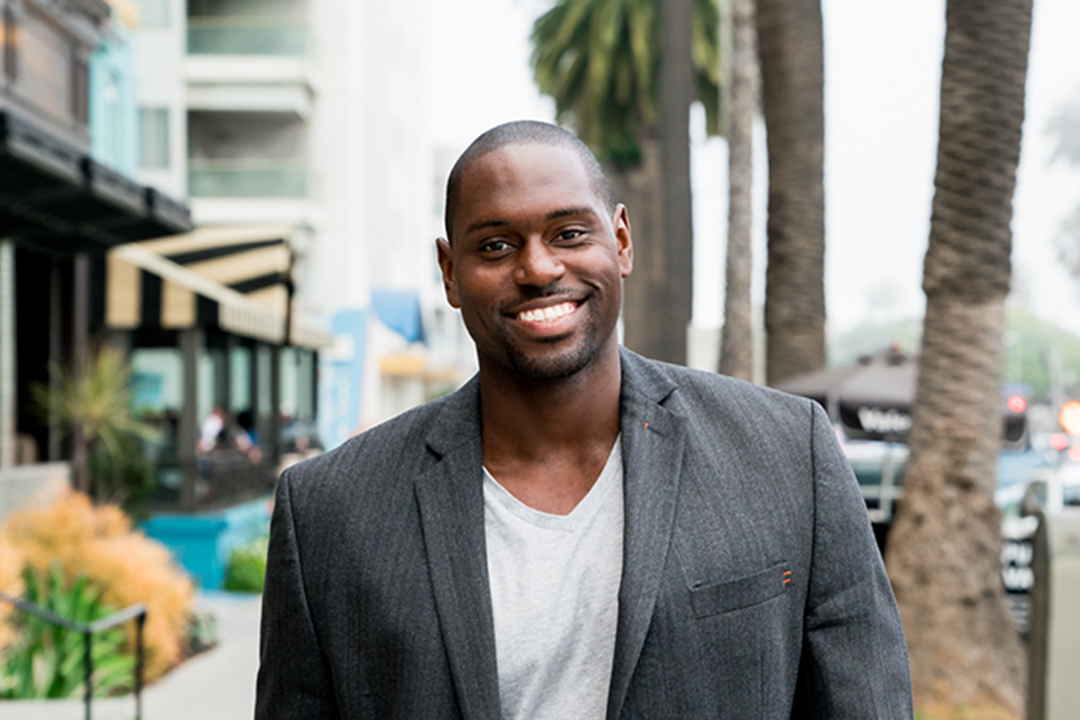At a juvenile detention center inside New York’s notorious Rikers Island prison, Isaiah Pickens, BA ’05, faced what he would look back on as a pivotal moment in his young career.
A PhD student with aspirations to become a clinical psychologist, the former Columbian College psychology major volunteered as a counselor for young people caught up in the juvenile justice system. Within the prison walls, he sat among a semi-circle of folding chairs, talking to a group of African American teenagers about the traumas in their lives.
Pickens listened as the teens told stories about how they ended up in Rikers—from run-ins with the police to violence in their homes. He nodded empathetically and encouraged them to stay positive. This place, he told them, didn’t have to be their destination.
But not all the teens bought Pickens’ message. “Come on,” one young man challenged him. “You don’t really believe that.”
Pickens instantly understood his meaning: “From one black male to another, he was saying he saw right through me,” he said. “I must have convinced him that I believed what I was saying, because then he called me out as not really being black.”
That moment—a young man behind bars challenging his identity as an African American—stayed with Pickens, who, today, is a renowned psychologist, a frequent media voice in defense of the underserved and underprivileged and the host of a TLC reality show. But after the showdown in Rikers, he seriously doubted whether he should continue on his professional path. Could he really look young black men in the eye, surrounded by prison guards, and tell them not to lose hope?
“I knew if I was going to choose this career and remain true to my cultural heritage, I’d have to find a way to be a bridge,” he said. “I’d have to find a way to show young people that I wasn’t giving up on them—and provide them with a reason not to give up on themselves.”
Perseverance and passion are two qualities Pickens has never lacked. A gifted high school student, he earned a full-tuition Stephen Joel Trachtenberg Scholarship and enrolled at GW as a 16-year-old freshman. Soon after, he landed a spot on GW’s basketball team and, as a theatre minor, played a role on the HBO series The Wire while still an undergraduate. His academic focus garnered him a Gamow Research Fellowship and a research assistant position in Associate Professor of Clinical/Community Psychology Christina Gee’s lab.
“Isaiah is fearless, naturally curious and has a sense of openness to new experiences,” Gee said. “If there is a challenge out there, he’s willing to take it.”
After graduating from GW, Pickens initially planned to pursue careers as both an actor and a psychologist. It didn’t take long, he said, to learn that “you can’t go on auditions and get your PhD at same time,” he said. But after earning his doctoral degree at Fordham University, Pickens was determined to combine psychology and entertainment as a means of reaching a broad audience. He created iOpening Enterprises, a multi-media company that promotes accessible health messages to young people through books, film and life skills workshops. He is a regular contributor to Psychology Today, HuffPost and BlackDoctor.org, and he has appeared in national media outlets to discuss the psychological implications of current events as they relate to trauma and mental health issues.
Recently Pickens became the co-host of a new TLC reality show called The Spouse House, which pairs seven single men and seven single women in one house to find long-term relationships. Pickens counsels the couples as they face the weekly prospect of either accepting a proposal or being evicted from the house.
“It’s not what I ever pictured myself doing,” Pickens laughed. “My life’s mission is to help develop the healthiest versions of people. But I also like to think outside the box.”
Voices to Honor
As a D.C. native attending the School Without Walls, Pickens jokes that he grew up literally across the street from the GW Psychological and Brain Sciences Department. The son of educators—his father was a vice principal, his mother a social worker—his parents’ example fostered a passion to help young people meet their goals. For Gee, Pickens’ enthusiasm in the lab and the classroom was nothing short of infectious. “Isaiah stood out immediately,” said Gee. “He was truly inquisitive, and I saw a great deal of potential in him.”
Through his varied professional roles—Pickens is also affiliated with UCLA-Duke National Center for Child Traumatic Stress and the coordinator of the online National Child Traumatic Stress Network—he’s traveled across the country to schools, jails and foster care agencies, working with young people on understanding the impact of life stress and trauma. The author of a book on understanding the pressures on young people (The Dawn of Generation Why), Pickens says he frequently hears teens express concerns about social justice, cyber bullying and suicide. He is struck by the fact that these young people are often more willing than adults to admit racial and cultural biases—and talk about ways to confront them.
“One of the things that’s difficult for people to come to terms with is that we’re all biased in some way,” Pickens said. “The way to deal with biases is to acknowledge them and face them in the light of day.”
But too often, he said, teens’ opinions are brushed aside by even well-meaning adults—a generational bias that Pickens advises parents and teachers to address. “So many adults are so intent on showing they are in charge that they don’t fully listen to what young people have to say,” he noted. “And, believe me, young people are saying things that are worth honoring.”


